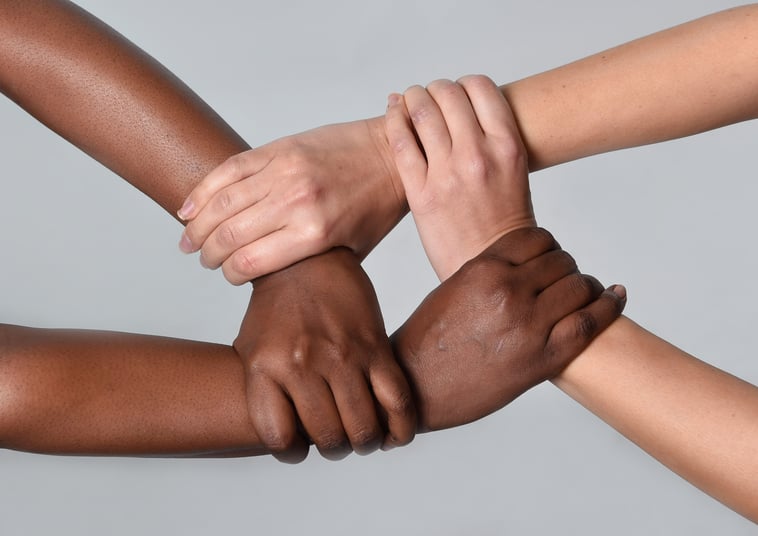
It was the voice of Derek Weimer, a history teacher, that truly made me reflect on my role as a professional educator in the wake of what happened in Charlottesville, Virginia. Weimer is a former history teacher for James Alex Fields, Jr., the accused domestic terrorist who allegedly drove a car into a crowd of counter-protesters at a white supremacist rally in the city over the weekend, killing one person.
Weimer recognized that Fields had a fascination with white supremacy and Nazi ideology throughout high school and, as his teacher, he did his best to use historical facts and academic reasoning to counter Fields' ideology. When news of Fields’ murderous role emerged, Weimer responded in an interview that, while he had done his best, he had failed as a teacher.
Failed as a teacher? What does it mean to say that a teacher, prepared with historical facts and academic reasoning, failed?
The pressure Weimer unfairly placed on himself reflects the pressure many educators can feel when faced with guiding young people in the classroom. If academic reasoning isn’t enough, what should our goals be as an educator community?
I found my answer many years ago when I first read this excerpt from Haim Ginnott’s Teacher and Child: A Book for Parents and Teachers:
Dear teacher,
I am a survivor of a concentration camp.
My eyes saw what no man should witness:
Gas chambers built by learned engineers.
Children poisoned by educated doctors.
Infants killed by trained nurses.
Women and babies shot and burned by high school and college graduates.
So I am suspicious of education.
My request is: Help your students become human. Your efforts must never produce learned monsters, skilled psychopaths, educated Eichmanns.
Reading, writing, arithmetic are important only if they serve to make our children more humane.
Teachers have a tremendous responsibility. Academic rigor is demanding, but it’s not enough. Facts and academic reasoning, in a vacuum, can allow curious adolescents, who themselves are wrestling with questions of who they are, their place in society, and how to use their voice, to confuse dictatorship and genocide with “power” and “success.” Not only must we help our students master skills and content, but we must also help develop their moral compass to empower them to become informed and ethically engaged civic participants. In short, to make our students “more humane.”
But, as Weimer rightfully points out, this is really hard. And the sense that we’ve failed to help our students become more humane can often make us, their educators, feel like failures ourselves.
How do we help our students become more humane?
There is no simple answer—no one-off lesson plan, no one quirky video clip, and no one motivational speaker that we can use. Empathy is not developed by flipping a switch, but rather it is cultivated with intentionality and care. There are important components that increase the possibility that our students will expand their Universe of Obligation and see themselves as responsible civic participants:
- Create a Reflective Community of Learners: Create safe and reflective classrooms, where students are encouraged to—and feel safe to—take challenging risks and ask difficult questions. Safe classrooms cannot be sterile. Our classrooms cannot be ethically neutral because history and the present are not ethically neutral. As John Amaechi said in his discussion of identity: teachers must create spaces “...where people can take chances and fail, where people can tell stories about themselves and reveal things about themselves without risk of derision, without fear of being marginalized. Without safety there is nothing, there is no learning.” By creating reflective classrooms, where students engage in academic rigor and ethical reflection—challenging the heads and the hearts of our students—we can help them develop the skills of ethical civic responsibility.
- Face History: Use in-depth case studies of difficult history, like our resources, Holocaust and Human Behavior and The Reconstruction Era: The Fragility of Democracy, so our students understand the choices people made in the past, the lasting legacies of that history, and opportunities for participation.
- And Ourselves: We cannot assume that students will make modern connections, or reflect on their own agency, by osmosis or luck. Asking students to consider their own behavior and their own decision making—within their own context—empowers students to realize that even as there are important differences between history and today, the universal questions of membership, human behavior, and choosing to participate are ones that we must answer, as well.
- Use Dynamic and Engaging Pedagogy: Use teaching strategies that empower students to ask questions, make connections, challenge their assumptions and consider new perspectives. There are strategies for facilitating difficult conversations, guides for fostering civil discourse, and your Facing History Program Associate is here as a partner to help you choose the right resources for your classroom.
As we return to our schools, and as our students return to our classrooms, recently immersed in the images and experience of Charlottesville, let’s remember that it’s not enough to teach our students history. We must help our students—and ourselves—to face history, because “reading, writing, arithmetic are important only if they serve to make our children more humane.”
Explore our lesson, "Preparing Students for Difficult Conversations," from our unit, Facing Ferguson: News Literacy in a Digital Age to help facilitate thoughtful discussions with your students as they return to the classroom.


